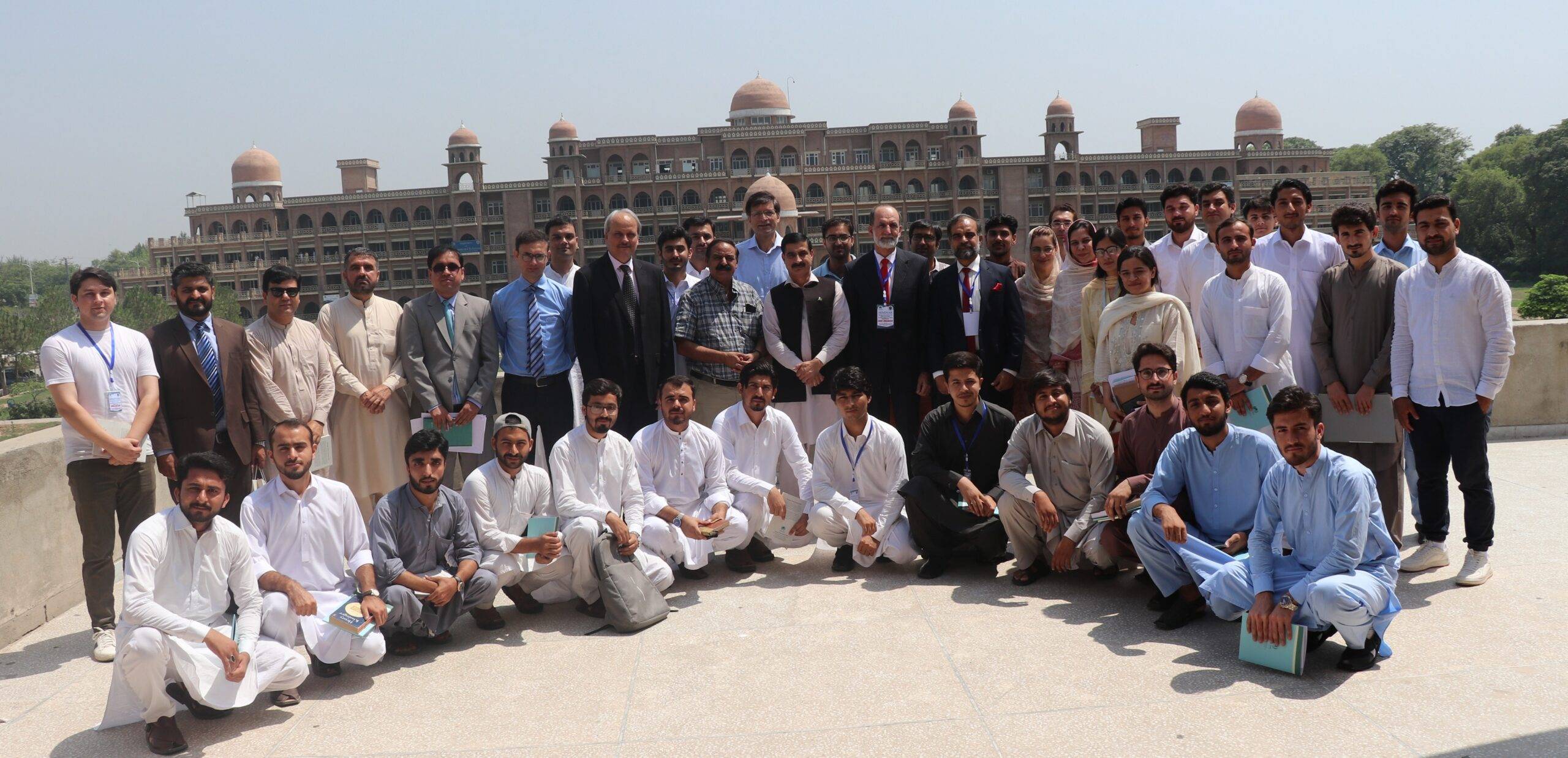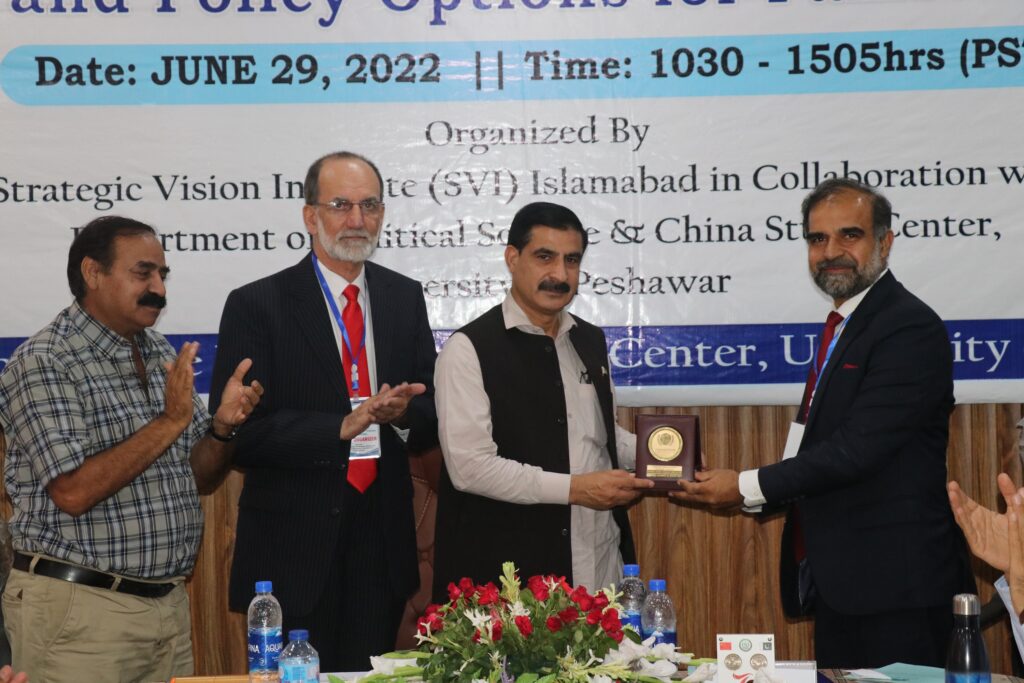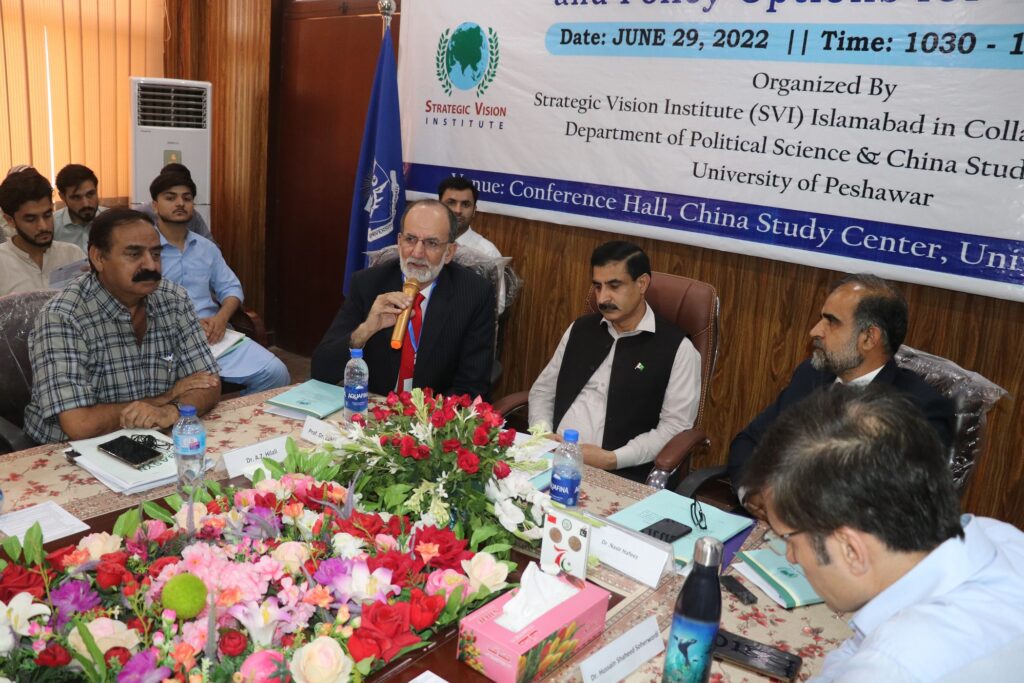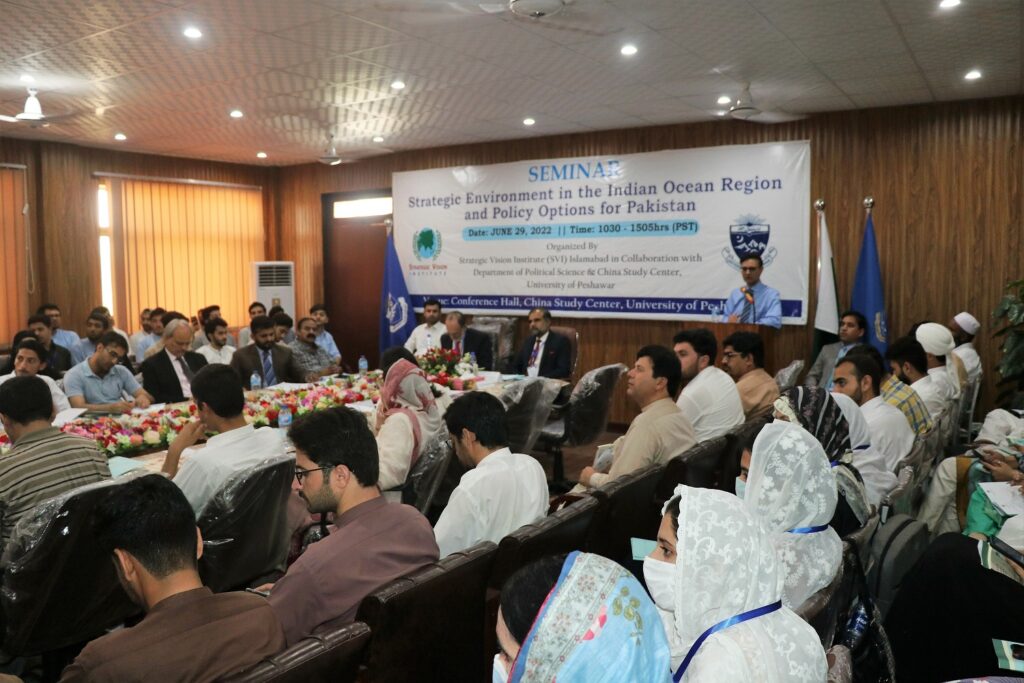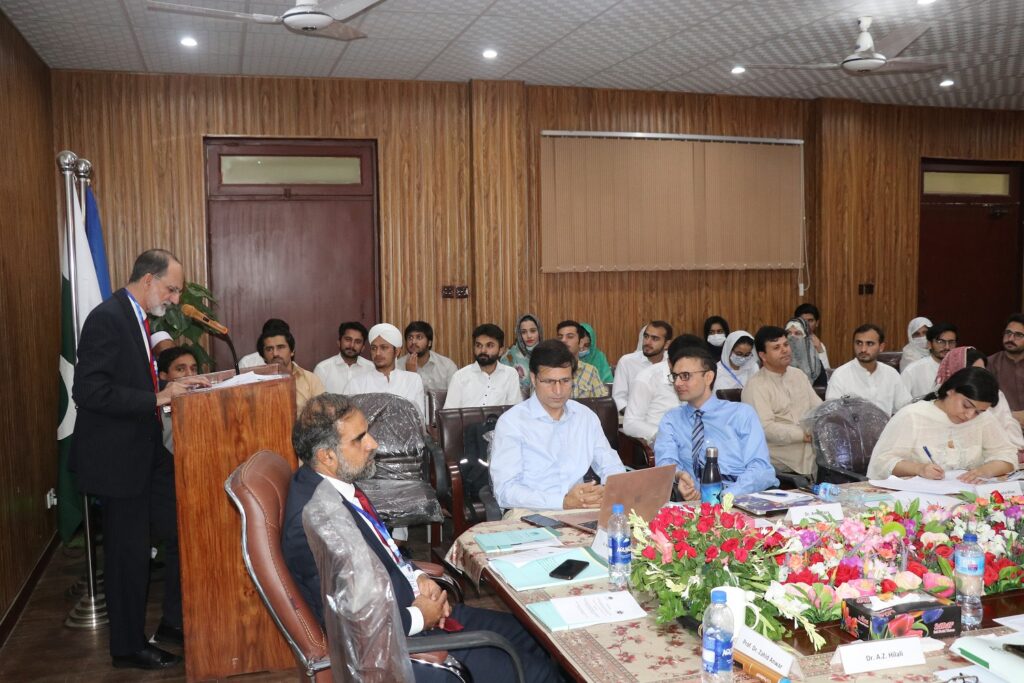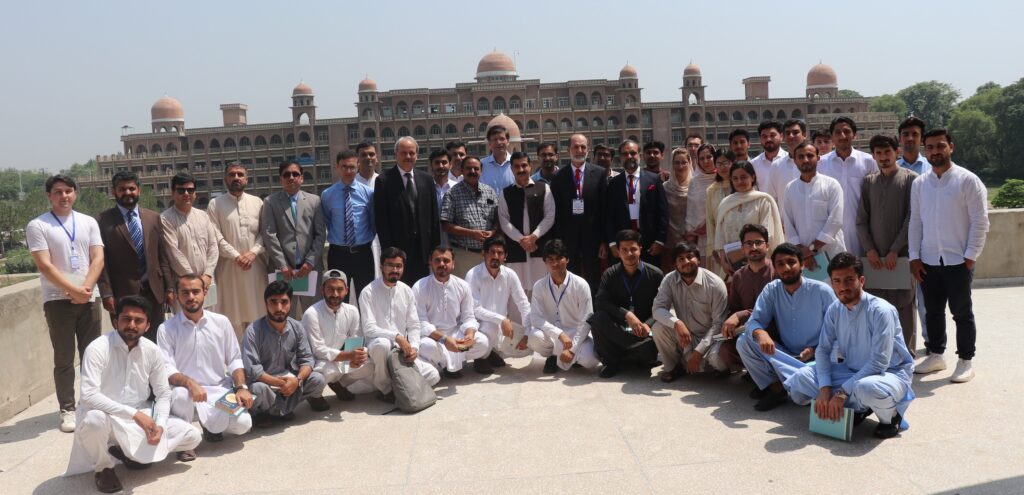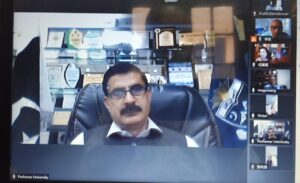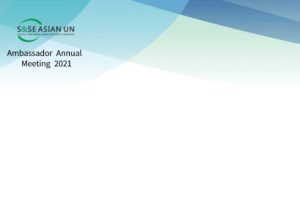China Study Center and Department of Political Science, University of Peshawar in collaboration with Strategic Vision Institute (SVI), Islamabad organized a day-long seminar themed ” Strategic Environment in Indian Ocean Region and Policy Options for Pakistan” on June 29, 2022, at the conference hall of China Study Center, University of Peshawar.
The seminar was divided into three sessions. The Seminar began with the recitation of the Holy Quran followed by the National Anthem of the Islamic Republic of Pakistan.
Prof Dr. Muhammad Idrees Vice Chancellor University of Peshawar graced the occasion as a chief guest. The Vice-Chancellor congratulated the organizers for conducting a seminar on such an important theme. He stated that the University of Peshawar is the oldest university in Khyber Pakhtunkhwa and said that the University of Peshawar would continue to collaborate and cooperate with other institutions for academic excellence.
Prof. Dr. Zahid Anwar Director China Study Center and the Pro-Vice-Chancellor University of Peshawar welcomed all the guest speakers, faculty members, and HODs of different departments of the University of Peshawar, experts, students, scholars and journalists.
Dr. Nasir Hafeez Director Strategic Vision Institute (SVI), Islamabad was thankful to the organizer for organizing such a great event in a conducive environment. He talked about the Strategic Vision Institute (SVI) and gave details about the SVI’s aims, vision, and mission. He highlighted the significance of Indian Ocean Region (IOR) in the context of current development and Pakistan national interests.
Prof Dr. A.Z. Hilali, Chairman Department of Politics & IR, Abasyn University, Peshawar, talked about the Strategic Environment in the Indian Ocean Region. He said that China has developed strategic cooperation with many countries, and it is not acceptable to the US and India. He added that Pakistan has strong geopolitical reasons to challenge Indian dominance and cooperate with China in the Indian Ocean Region.
Dr. Amir Raza, (Assistant Prof Department of Political Science), University of Peshawar speaks about the Quadrilateral Security Dialogue (QUAD) and its implications for Pakistan. He talked about the establishment and purpose of the QUAD. He said that the initial objective of QUAD was humanitarian but today the main aim is to contain the influence of China in the Indo-Pacific region.
Mr. Sufian Ullah, Senior Research Officer, CIIS Islamabad talked about the Indian Naval Strategy: Repercussions for Regional Security Architecture. He mentioned India’s Naval strategy and said that the US has the capability to engage in both the Pacific and the Indian Ocean and can retains its dominance in the pacific region.
Ms. Ahyousha Khan Associate Director SVI shares her views about the Nuclearization of the Indian Ocean Region: India’s Policy. She stated that the Nuclearization of the Indian Ocean has been given much attention and stated that the nuclearization in the Indian Ocean started during the Cold War era. India considers Indian Ocean as its own area of influence. India has deliberately enhanced its capabilities to become dominant regional power she added.
Prof. Dr. Zahid Anwar Pro-Vice-Chancellor and Director China Study Center, University of Peshawar highlighted the importance of Indian Ocean Region. He said that in recent years, as China has continued its rise as an economic, political, and military power, India and the United States have sought a deeper strategic relationship. An Indo-US strategic partnership has implications for Pakistan. India’s national security objectives are clear in the sense that it sees Indian Ocean Region as an extension of India. The increase in Chinese Cooperation with littoral states in the Indian Ocean Region is posing considerable challenges to Indian hegemonic designs in the ocean he added.
Dr. Hussian Shaheed Soherwordi, Prof Department of IR, University of Peshawar spoke about the blue economy and highlighted how the Indian Ocean is important in that context. He mentioned that it is need of time to fully utilize the potential of Pakistan’s blue economy.
In the Questions Answer Session participants asked pertinent Questions which the experts answered very well. A large number of students, faculty members, researchers, scholars, journalist and field experts participated in the seminar.

